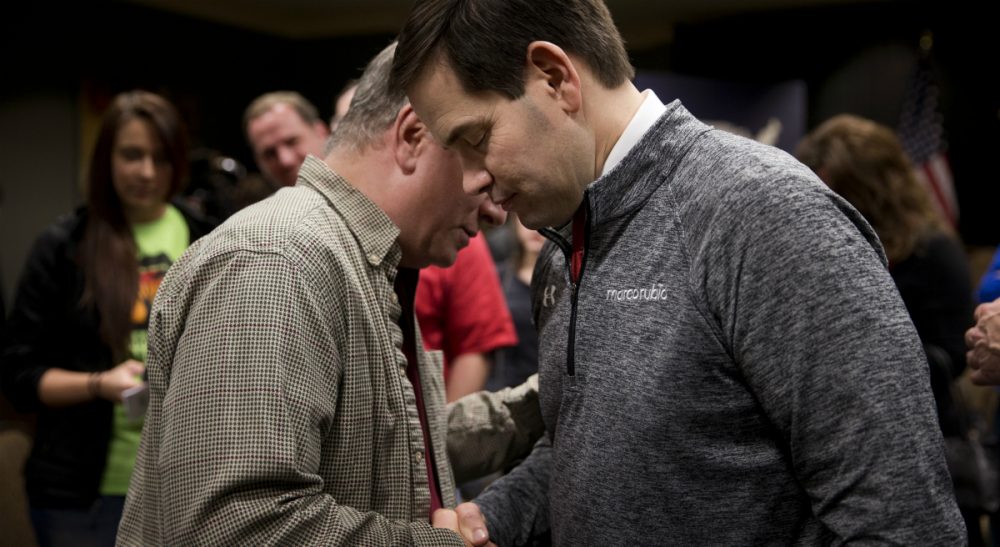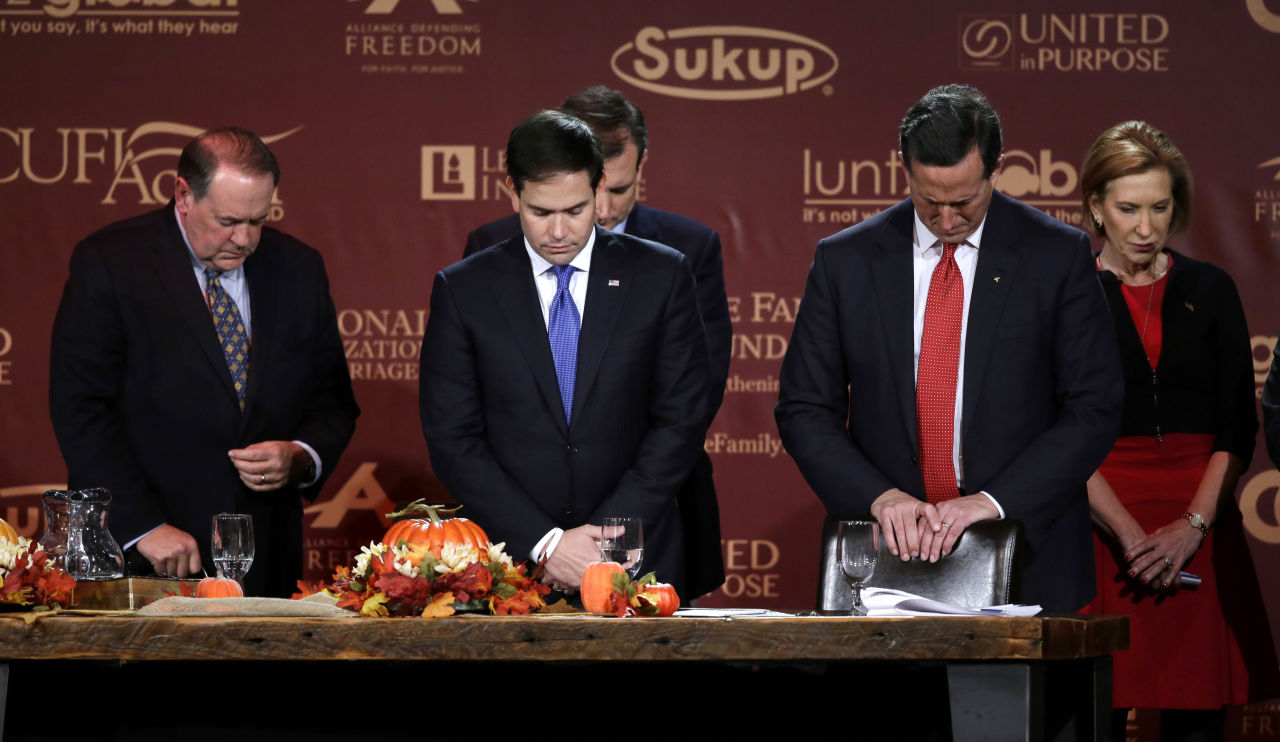Advertisement
Saying Someone Else’s Prayers: Religiosity In 2016, And Beyond

In the early 1960s, when I was attending elementary school in Montreal, two different school boards administered two separate public school systems: the Roman Catholic school system for Francophones, and the Protestant one for Anglophones.
As a Jew born to primarily English-speaking parents who were neither eager nor able to send me to private Jewish parochial institution, my only option was to go to the Protestant school in our predominantly Jewish suburb. There I stood in class every day to belt out “God Save the Queen” or “Oh Canada,” sing a hymn or two from a hymnal, and recite the Anglican version of the Lord’s Prayer.
Our rights to self-expression, our freedom to be devoid of faith or to live by it in a bounty of forms -- these are gifts that are both granted and suppressed by governments, not God.
My classmates and I found the experience a bit mystifying. Not having been educated in Christian theology, we were perplexed by having to seek forgiveness for trespassing – a prohibition we associated only with the stern signs planted in the new home construction sites in our burgeoning neighborhood. We were creeped out at the prospect of walking through the valley of death, unsure of whose rod and staff would comfort us, but pretty sure it wasn’t Rabbi Becker’s.
I wasn’t traumatized by having to enact someone else’s beliefs so much as alienated. But I also didn’t question it until immigrating to the United States at the age of 10, when I gratefully noticed that I no longer had to.
Our move to Michigan wasn’t without pain. I had a funny Canadian accent, and was clueless about what an "ice cream social" was, why paper bags were called "sacks," and why Michiganders had such an aversion to pronouncing words containing double o's as they were meant to be articulated, choosing instead to refer to "roofs" as "ruhfs" and "roots" as "ruhts." More significant, I moved to Michigan at an age when my curly hair, budding breasts, and shyness would have made daily life excruciating anywhere.
But those routine agonies of early adolescence were at least mitigated by the fact that otherness was not defined by one's family’s creed. In my new middle school, tribalism was rampant, and kids rose to coolness and fell from it in the course of weeks. I dwelled on the periphery of several cliques, but at least I was no longer the misfit in a culture borne from the mating of authority and (someone else’s) theology. While religious homilies abounded on greeting cards and church signs, they didn’t issue from the mouths of public school teachers. And they most certainly didn’t fuel the stump speeches of politicians. In 1964, I had moved to a country that nobody had declared as founded in any religious tradition, not even a Judeo-Christian one.

That country is practically unrecognizable during this election season. Ted Cruz, Mike Huckabee, and Marco Rubio brandish their religious faith like Samurai swords, casting themselves as loyal defenders of God (though as campaign finance records prove, the nobles of the finance and energy industries are their more immediate patrons). During the most recent Republican debate — prior to the evangelically-driven Iowa primary, you could practically hear Rubio smack his lips when asked if he was the “savior” of the Republican Party. “Well, let me be clear about one thing, there's only one savior and it's not me,” he intoned with self-aggrandizing piety. “It's Jesus Christ, who came down to Earth and died for our sins."
It’s not just the specific religiosity of his response that I found so chilling, but the dis-ingenuousness. Rubio knew that “savior” was being used in its secular context in the question, but jumped at the chance to infuse theology into his answer. By the same token, he and several of his fellow Republican candidates seize every opportunity to use faith not to unite, but to polarize people, whether by calling 2016 a "religious liberty election" and recruiting pastors in each of Iowa’s precincts to do faith-based outreach (as Ted Cruz did), or by attacking the Affordable Care Act’s requirement that employers cover contraception as an “all-out assault on religious freedom.”
This alleged attack is more than just another attempt to fan the fire of aggrievement that fuels their candidacies. It’s a canny, dangerous attempt to turn reality on its head. After all, nobody prevented Rubio from running a political ad in Iowa stating that “Our goal is eternity, the ability to live alongside our creator for all time, to accept the free gift of salvation offered to us by Jesus Christ."
Fortunately, by the same token, nobody is prohibiting me from declaring how objectionable I find this kind of campaigning … yet. So while I still can, let me say that every time I see these kinds of ads and hear this kind of language in the context of political debate, I feel assaulted.
...there's a difference between articulating values informed by religion and weaving theology into our political discourse.
This is not because I hate people of Christian or any other faith or think that politicians should be required to be devoid of it. It’s because I think Marco Rubio is wrong — indeed, deceptive — when he says that “… if you do not understand that our Judeo-Christian values are one of the reasons why America is such a special country, you don't understand our history." If he were right, we’d be living under the Christian equivalent of Sharia law, which is, quite simply, a legal system derived from the religious precepts of Islam. And Rubio’s rival in zealotry, Ted Cruz, would probably be just fine with that based on his assertion at a November evangelical conference that “Any president who doesn’t begin every day on his knees isn’t fit to be commander in chief of this country.”
Judging from Monday's results, the Republican caucus voters of Iowa approve of these candidates' moral values. But there's a difference between articulating values informed by religion and weaving theology into our political discourse.
Our rights to self-expression, our freedom to be devoid of faith or to live by it in a bounty of forms — these are gifts that are both granted and suppressed by governments, not God. And when demagogic would-be leaders promote the view that political institutions are manifestations of God’s will, I worry that it’s just a matter of time before my granddaughters will be reciting someone else’s prayers.
